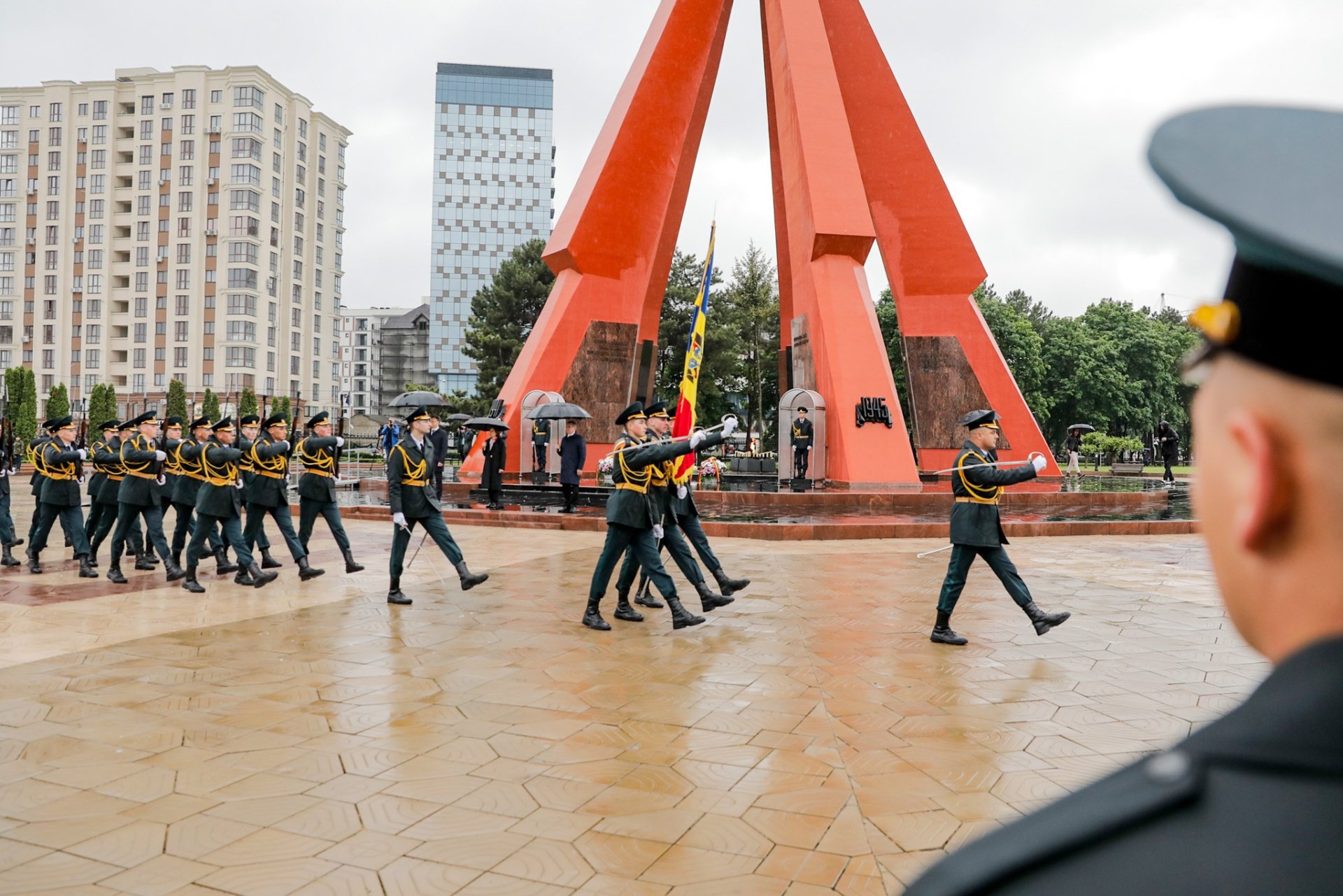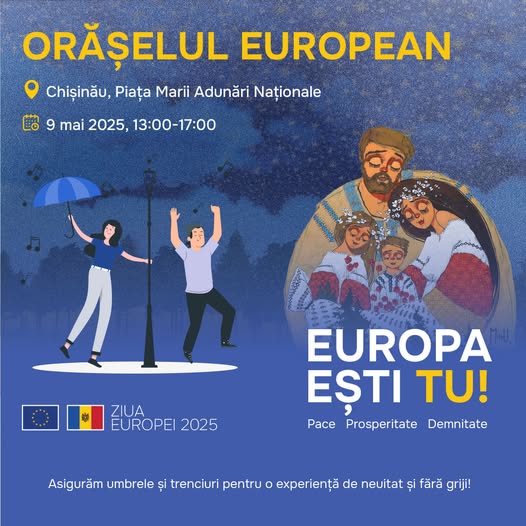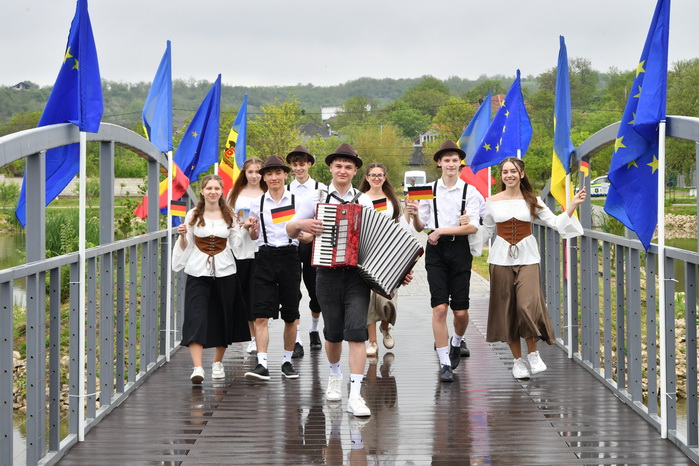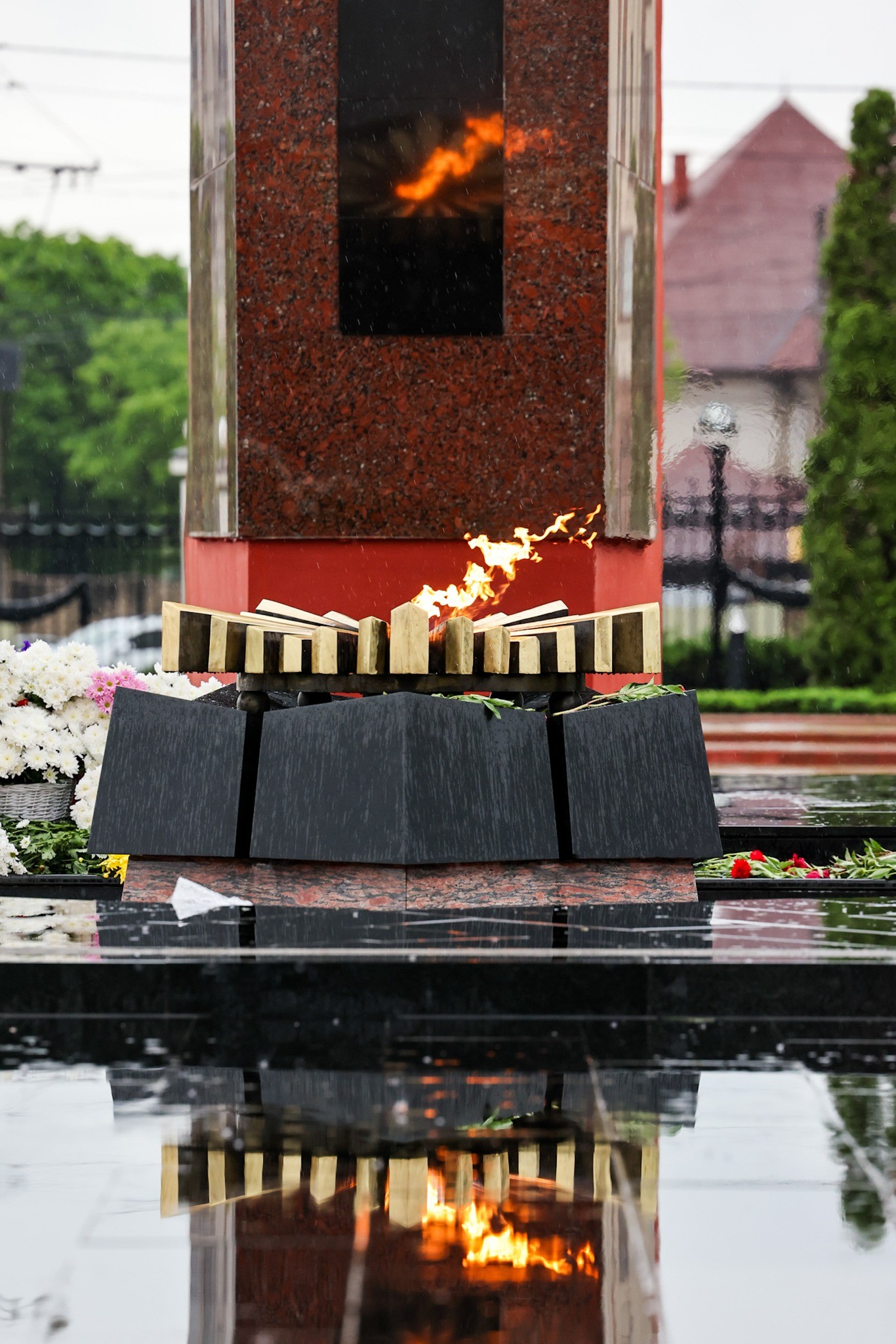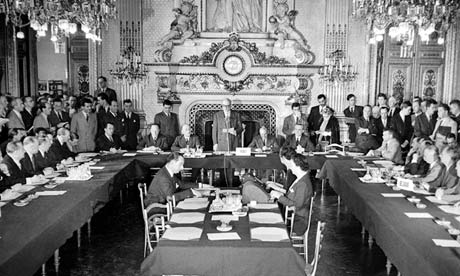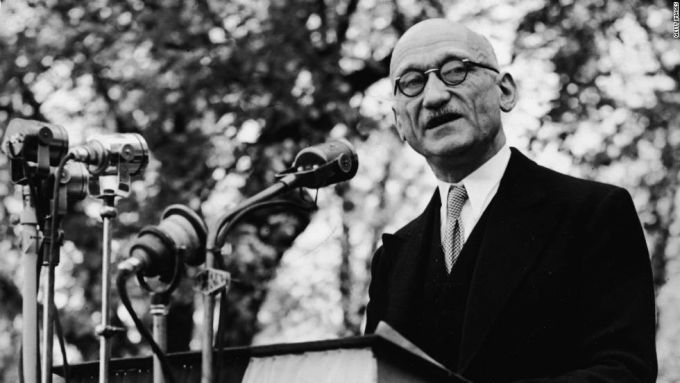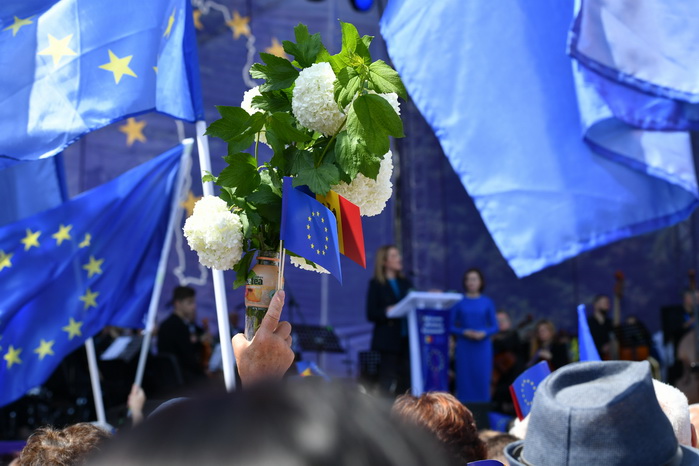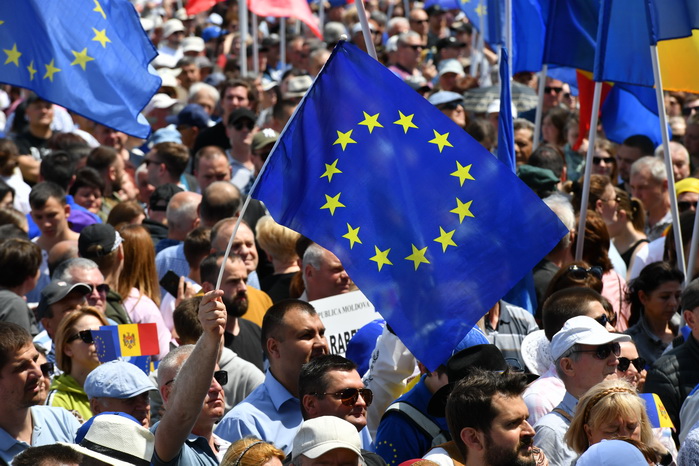
Victory Day and Europe Day celebrated in Moldova
On 9 May, Victory Day and the commemoration of heroes fallen in war are marked in the Republic of Moldova. On the same day, Europe Day is also celebrated. The events begin early in the morning with the laying of flowers at Eternity Memorial Complex. Subsequently, many events will take place in the center of the capital and other cities in Moldova, celebrating Europe Day. It will conclude with an exceptional concert on the Great National Assembly Square.
May 8-9, UN Days of Remembrance and Reconciliation in Memory of Those Who Fell in World War IIIn 2004, the UN General Assembly declared, through Resolution 59/26, the days of May 8 and 9, as a time of remembrance and reconciliation for all who lost their lives during World War II. Although member states have individual days of victory, liberation, and commemoration, the UN General Assembly invited all member states, organizations of the United Nations system, non-governmental organizations, and individuals to commemorate annually, either one or both days, in an appropriate manner and to pay tribute to all those who fell during World War II.
In September 1939, the invasion of Poland by Germany triggered the start of World War II, which ended in Europe on May 8, 1945, when Nazi Germany signed its unconditional surrender. The war officially ended on September 2, 1945, on the battleship Missouri, where the surrender of Japan was signed, following American nuclear bombings of Hiroshima and Nagasaki (August 6 and 9). In the biggest conflict in history, over 60 million people, both military and civilians, lost their lives. For the first time, civilian casualties exceeded military ones. The aftermath of the war, including geopolitical, cultural, and economic changes, was unprecedented.
Parades in Europe on 80th Anniversary of allies' victory over Nazi GermanyIn the United Kingdom, a service is announced at Westminster Abbey, the church in London where British monarchs are crowned, and a grand concert.
France. President Emmanuel Macron marks the day traditionally by laying a wreath at the Tomb of the Unknown Soldier under the Arc de Triomphe in Paris and attending the military parade on the Champs Elysees.
Russia organizes a grand military parade in Moscow. Since the Nazi capitulation 80 years ago took place after midnight, that is on May 9, this date is considered the victory day of the Soviet Union. Alongside Russians, citizens of other Soviet republics, including Moldovans and Ukrainians, fought in the Red Army of the former communist power.
Over 10,000 soldiers, officer school students, children of military personnel, and members of the youth organization Iunarmia will march on May 9 in Moscow.
Parades will also take place in St. Petersburg, Vladivostok, and other major cities in Russia.
USA. Initially, the American government of President Donald Trump had not announced any plans to commemorate VE Day, which the White House leader wants to rename World War II Victory Day.
Ukraine. Due to the current war with Russia, Ukraine has not planned any significant official events for Victory Day, Thursday being considered as the Day of Remembrance and Reconciliation. National and local leaders will lay wreaths in memory of the fallen, and at many monuments, ordinary people will also pay tribute. Ukrainians now celebrate victory on May 8, like most Europeans, not on May 9, the date marked by Soviets and then Russians until now.
Poland hosts the foreign ministers from the member states of the European Union, meeting informally in Warsaw since Wednesday. The Poles hold the rotating presidency of the EU Council this semester.May 9, Europe Day
In 1950, the nations of Europe were still struggling to overcome the disastrous consequences of World War II, which had ended five years earlier.
The declaration delivered on May 9, 1950, by Robert Schuman, the French Minister of Foreign Affairs, became known in the history of European construction as the “Schuman Declaration.” The text proposed the creation of a community for coal and steel, whose members would jointly manage these two resources.
The European Community for Coal and Steel, established by France, Germany, Italy, the Netherlands, Belgium, and Luxembourg, was the first of a series of supra-national European institutions that laid the foundation of today's European Union.Quotes from the Declaration delivered on May 9, 1950, by Robert Schuman:
“World peace cannot be safeguarded without creative efforts proportionate to the dangers that threaten it.”
“Europe will not be built all at once, or according to a single plan. It will be built through concrete achievements which first create a de facto solidarity.”
PHOTO // Qutub Minar tower from New Delhi illuminated in colors of Moldovan Flag on Independence Day
VIDEO// President Maia Sandu's Independence Day message: "Moldova lives through you, through each working hand, through each loving heart. We forge Moldova's path"
Moldovan foreign affairs minister says Moldova presently more resilient against Kremlin's destabilization attempts
Moldova's Superior Council of Magistracy condemns violence in courts, calls for urgent measures of protection for magistrates
Alarming increase in number of COVID-19 cases: about 1,000 infections in Moldova in one week; National Public Health Agency confirms new Stratus variant of Covid
VioData – First national information system dedicated to combating violence
USMF "Nicolae Testemițanu" published results of additional admission session for bachelor's and master's studies
Environment Ministers of Romania, Moldova in Bucharest discuss cooperation for recycling, forests' protection, reducing food waste
Moldovan Labour Ministry launches help desk providing information on opening, work of family-type creches
DOC // Inmates to no longer be able to use mobile phones, internet in unauthorized way; regulation on blocking radio communications in penitentiaries published in Official Journal of Moldova
Real estate assets of MP Irina Lozovan seized; decision published in Official Journal of Moldova
Three independent candidates start electoral campaign parliamentary elections due in Moldova
Our Party of Moldova starts electoral campaign
Extraordinary Chinese music concert, dedicated to China's National Day, held at Chisinau-based Organ Hall
Action and Solidarity Party launched electoral campaign for 28 September parliamentary elections
Authorities report new fake on president "plans to send over 700 volunteers to Ukraine"
CEC rejected application to register PDMM's candidate list for parliamentary elections
Promo-LEX report for electoral period
On Romanian Language Day, Moldovan President hosts Romanian President in Chișinău
Leaders of Alternative Bloc of Moldova present electoral programme, delivered common message
PHOTO GALLERY // Moldova Salons invite visitors to discover contemporary art
Moldovan president has phone conversation with Polish head of state
Internal Protection and Anti-corruption Service of Ministry of Internal Affairs equipped with EU-supported modern drones for special missions
Latvia sets up new entry regulations for citizens without visa or residence permit
Moldovan parliament convenes for autumn session

